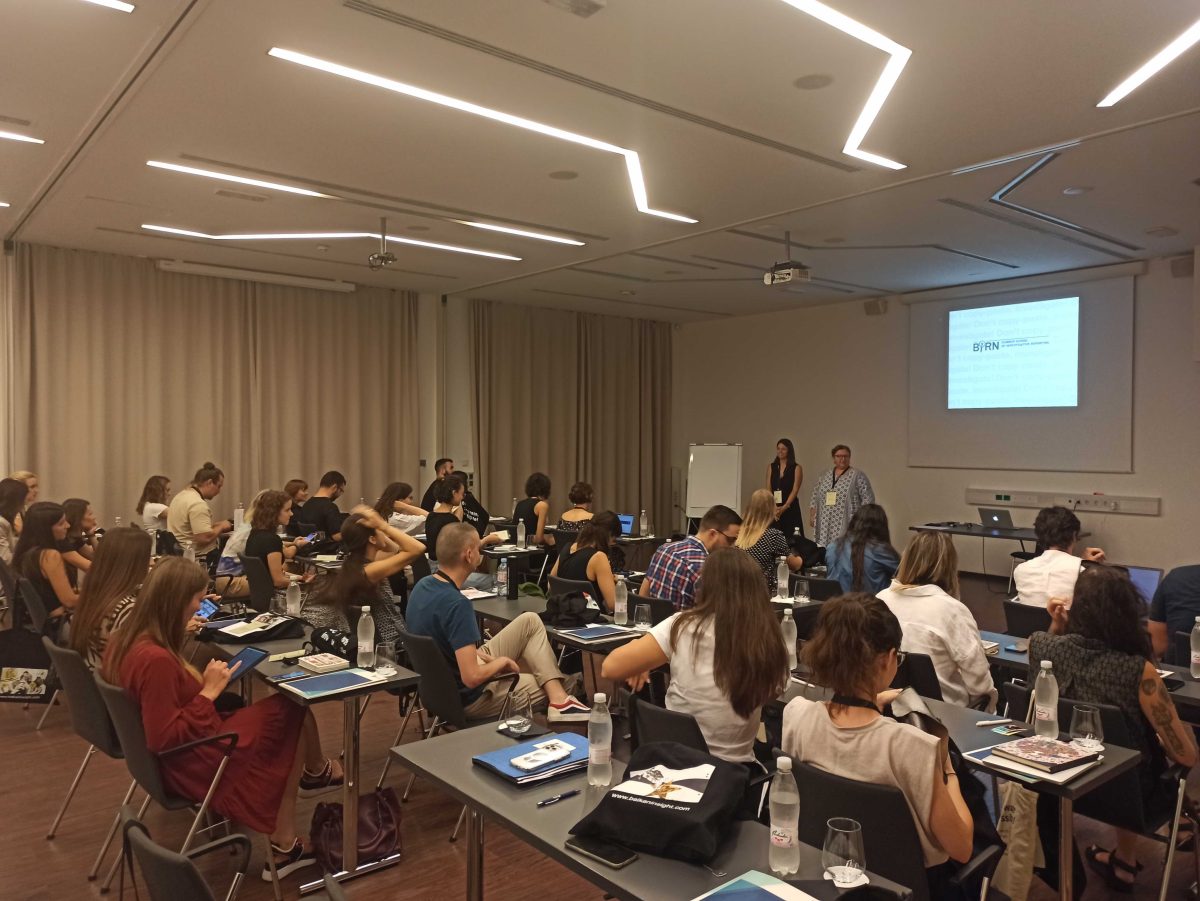This year’s Summer School of Investigative Reporting started on Monday in the Slovenian town of Portoroz.
During the week-long programme, journalists from Albania, Bosnia and Herzegovina, Bulgaria, Croatia, Czechia, Greece, Hungary, Kosovo, Moldova, Montenegro, North Macedonia, Poland, Romania, Serbia, Finland and Ukraine will learn new skills and techniques and work on investigative stories.
The head of Regional Operations at BIRN, Dusica Stilic, welcomed the participants selected from a record-breaking number of applications – 180 this year.
“We are very proud to have this extraordinary group of people eager to learn to become the best version of an investigative journalist they possibly can be,” Stilic said.
Ivana Nikolic, leading the Investigative Reporting Initiative Programme at BIRN, presented the agenda and encouraged the participants to work towards pitching powerful stories.
“This week, you will learn a lot about innovative journalism techniques and skills from award-winning journalists and editors,” Nikolic said, adding that for the first time this year, participants will have the opportunity to learn how to stay safe online while working on their investigations.
Freelance coder and data specialist Friedrich Lindenberg gave an introduction to open data for investigations. Lindenberg has been working with investigative journalists and anti-corruption activists for the past decade and has built data-driven tools that support their work.
Lindenberg gave practical advice on effectively searching and cross-referencing open databases and using various tools to track documents.
“It’s important to remember that a search doesn’t make any document or information reliable and doesn’t take away the journalist’s responsibility,” he told the participants.
The first day ended with the journalists sharing ideas and starting to work on pitching cross-border investigative stories.
